Difference between revisions of "Screenshots"
m (Removed typo from last sentence of first paragraph. Was "...or read more about the it including a full...") |
|||
| Line 1: | Line 1: | ||
'''Videos''' | '''Videos''' | ||
| − | Watch the new walk-through video that shows all the major features in LinuxMCE, including setup, instantly on [http://video.google.com/videoplay?docid=2176025602905109829&hl=en Google Video], or download it in high-def from the [[Mirrors]], or read more about | + | Watch the new walk-through video that shows all the major features in LinuxMCE, including setup, instantly on [http://video.google.com/videoplay?docid=2176025602905109829&hl=en Google Video], or download it in high-def from the [[Mirrors]], or read more about it including a full equipment list at [[Video]]. |
'''Screenshots: Using Linux MCE''' | '''Screenshots: Using Linux MCE''' | ||
Revision as of 21:06, 18 May 2008
Videos
Watch the new walk-through video that shows all the major features in LinuxMCE, including setup, instantly on Google Video, or download it in high-def from the Mirrors, or read more about it including a full equipment list at Video.
Screenshots: Using Linux MCE
There are 3 UI options. UI1 is the most basic, and runs on all video cards. However, the UI takes over the screen whenever you bring up the menu and any video that is playing gets reduced to a window. This is the easiest UI, because the UI never covers up any of the video. UI2 is preferred because it is completely media-centric. Your media is always full-screen and never reduced. Even when you're not watching your own video or photos, LinuxMCE displays as gallery art the interesting photos of the day from flickr.com with smooth and subtle motion so you always have media full-screen and can leave your TV on as wall art. UI2 is available with masking (medium), which only requires a video card with decent OpenGL and XDamage support. The alpha blending version looks nicer, but it requires a video card that supports the composite extensions, which currently is only the nVidia 6xxx and greater.
Main menu This lists all the top level options in a given room, broken down into categories: Lighting, Climate, etc. In UI1, the blank button between the media icon and the 'TV' is your "Now Playing", which takes you to the control screen for your active media. In UI2, the lower left button is your "Now Playing", and any options for your current media, like Audio Tracks, Subtitles, etc., show up as a sub-menu so you can do everything with only 1 screen. For UI2, use your remote control, or keyboard arrows, or mouse to select the menu pads at the bottom. The sub menu shoots up, like an upside-down version of pull-down menus in a computer application.
| UI1 or Basic UI | UI2 with medium settings (masking) | UI2 with alpha blending / transparency |
 |
 |
 |
File Browser
| UI1 or Basic UI | UI2 with medium settings | UI2 with alpha blending / transparency |
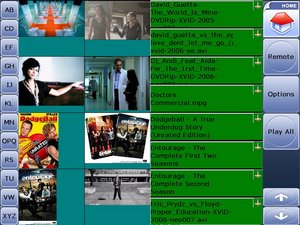 |
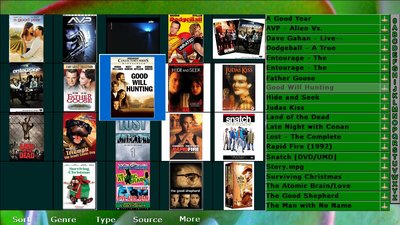 |
 |
DVD Remote
| UI1 or Basic UI | UI2 with medium settings | UI2 with alpha blending / transparency |
 |
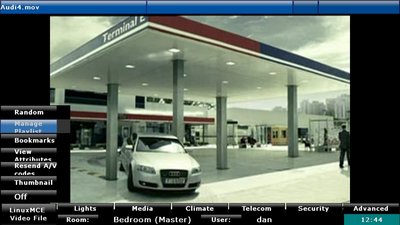 |
 |
Dial number
| UI1 or Basic UI | UI2 with medium settings | UI2 with alpha blending / transparency |
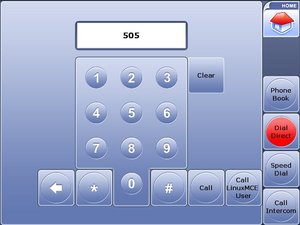 |
 |
 |
Security panel
| UI1 or Basic UI | UI2 with medium settings | UI2 with alpha blending / transparency |
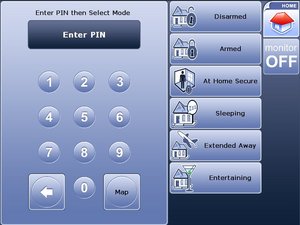 |
 |
 |